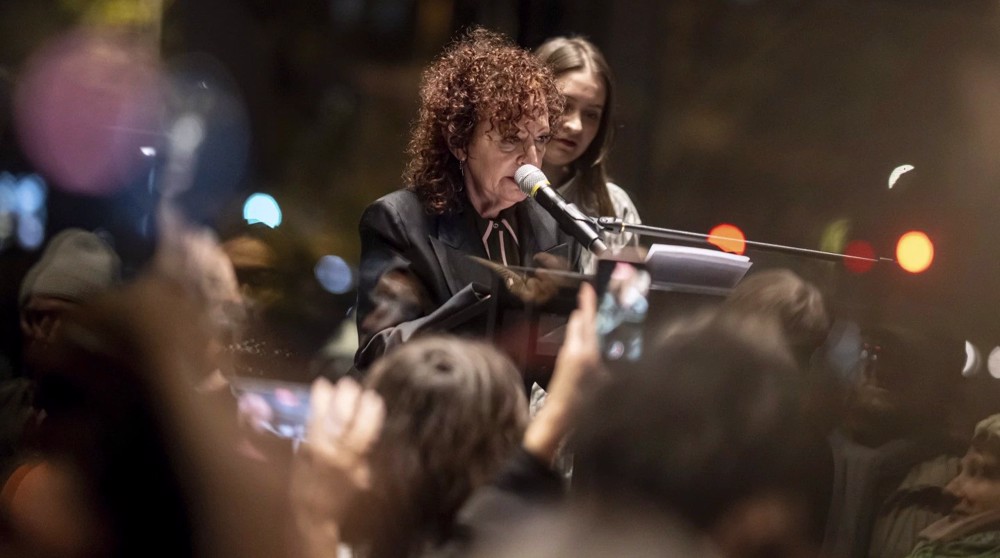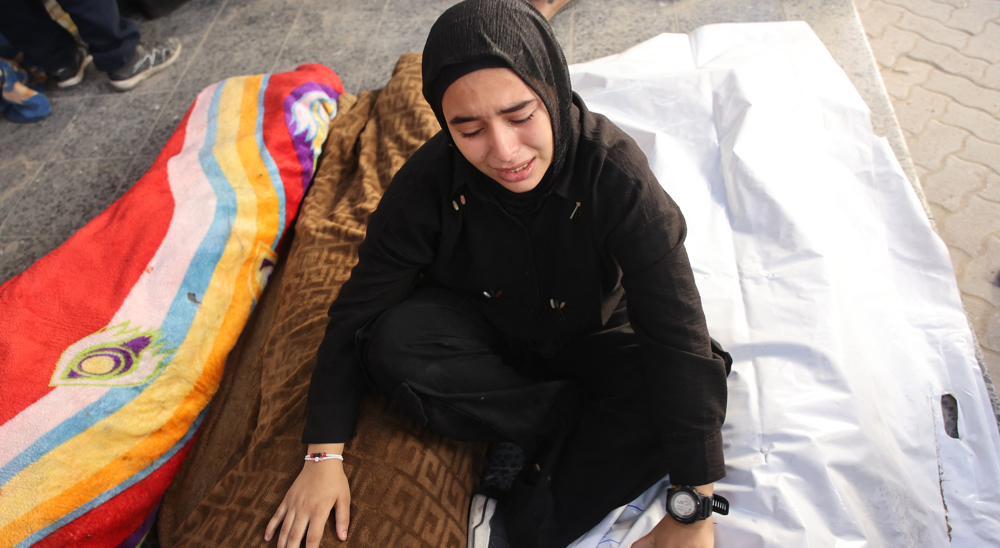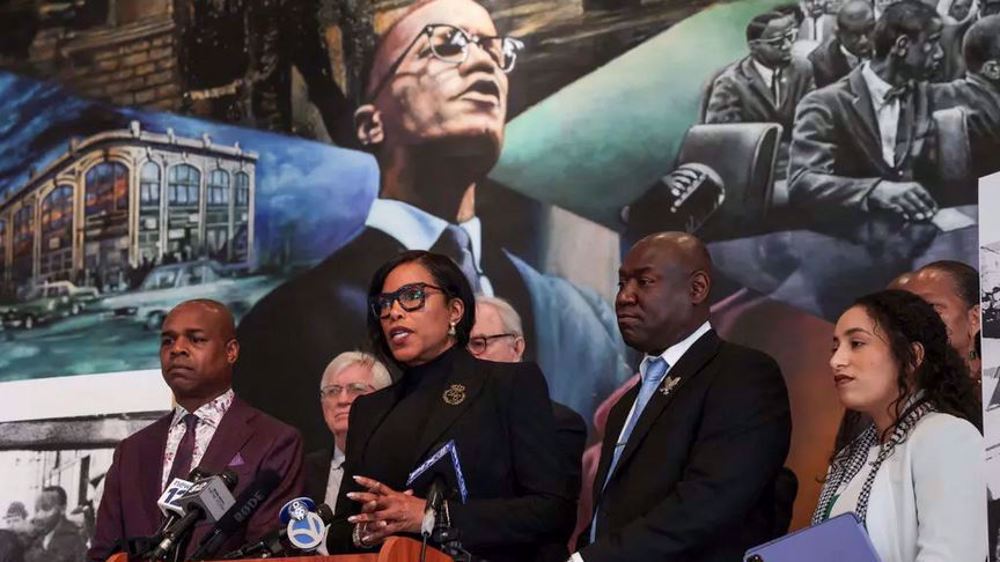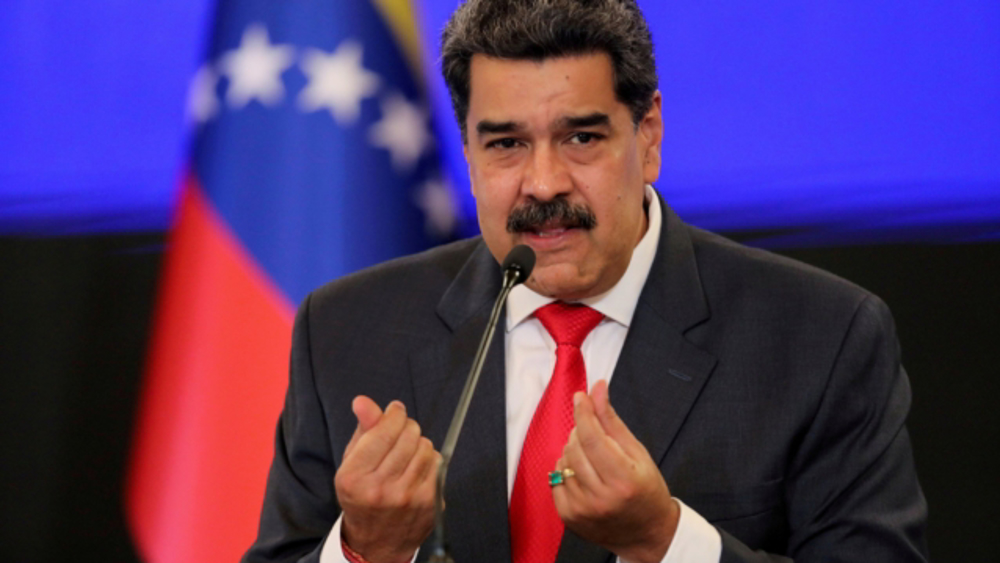Venezuela’s Maduro slams US plan to divert frozen funds to Guaido-led opposition
Venezuelan President Nicolas Maduro has slammed Washington’s plan to transfer $150 million of the country’s frozen funds from offshore accounts to the opposition led by Juan Guaido.
United States, which refused to recognize Maduro's re-election in 2018, has frozen millions of dollars of Venezuelan money in US bank accounts, in what has been termed ‘economic terrorism’.
In a thumping speech broadcast live on national television on Sunday, Maduro lashed out at both the US government and the Venezuelan opposition.
“It has become a juicy business of a pile of gangster bandits,” he said. “They have left the field of politics to dedicate themselves to extortion and fraud.”
The Venezuelan president said the opposition will use these resources to continue its “destabilizing” activities in the country, by financing a “communication war against Venezuela.”
He said all financial resources frozen abroad belong to the Venezuelan people, and they could have been used to acquire medicines, food and industrial supplies.
Citing a recent opinion poll, Maduro said over 85 percent people in Venezuela are against the US sanctions slapped on the country, including the freezing of its assets overseas.
Earlier this month, Venezuela's Foreign Minister Jorge Arreaza spoke about difficulties the country is facing in purchasing the coronavirus vaccines in the face of crippling US sanctions.
“If Venezuela did not have its resources blocked we would have been able to buy the 30 million vaccines the country needs three months ago," he was quoted saying by AFP. “As they are blocked, here we are.”
Like other countries in South America, Venezuela is facing a harsh new pandemic wave, fueled by more infectious virus variants coming from neighboring Brazil.
Experts say the sanctions, used as a toll for regime change, have no effect on the stability of the Maduro administration, but impacts the socio-economic condition of ordinary people amidst Covid19 crisis.
Iran, however, has managed to maintain their commercial relationship with Caracas, and both have made concerted efforts to bolster their ties despite US sanctions.
In a clear defiance of illegal US embargo, Iran has supplied several major gasoline cargoes to Venezuela in recent months to help the South American country cope with Washington’s economic pressure policy.
During a press conference in Caracas in February this year, UN Human Rights envoy Alena Douhan spoke about her preliminary assessment of her visit to Venezuela to evaluate the effects of the US blockade against the Latin American nation.
The UN diplomat said that the ongoing humanitarian crisis hitting the Venezuelan people is a direct effect of the sanctions imposed by the United States. She remarked her visit was based on UN standards of independence, impartiality, and comprehensiveness.
‘Extremely critical’ to avoid Syria being dragged into war: UN evnoy
What led to dilly-dallying in ICC arrest warrants against Netanyahu, Gallant
Palestinians flee Gaza City suburb after Israel issues forced evacuation order
Iran says will discuss key nuclear, regional issues with France, Germany, UK
VIDEO | Israeli archaeologist killed in Southern Lebanon
VIDEO | Israeli airstrike on Lebanon's army base kills soldier, injures 18 others
VIDEO | Sirens sound across Tel Aviv as Hezbollah fires barrage of missiles at Israeli target
Israeli ‘archeologist’ who toured south Lebanon in military uniform to falsify history















 This makes it easy to access the Press TV website
This makes it easy to access the Press TV website